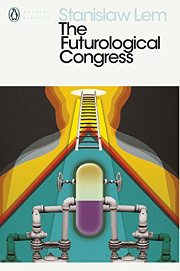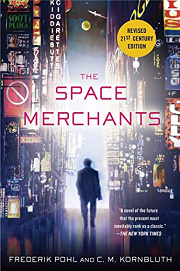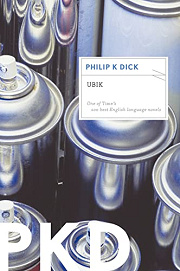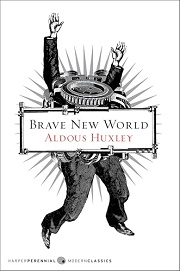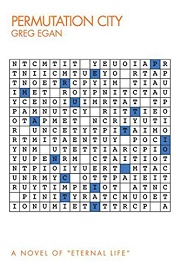Share your thoughts in a quick Shelf Talk!
The Futurological Congress by Stanisław Lem
After attending a surreal summit on the future, a wry astronaut finds himself slipping through layers of reality where utopia and nightmare blur. Razor-sharp satire meets mind-bending speculation as nothing is quite what it seems. The Futurological Congress is Lem at his most mischievous and thought-provoking.
Have you read this book? Share what you liked (or didn’t), and we’ll use your answers to recommend your next favorite read!
Love The Futurological Congress but not sure what to read next?
These picks are popular with readers who enjoyed this book. Complete a quick Shelf Talk to get recommendations made just for you! Warning: possible spoilers for The Futurological Congress below.
In The Futurological Congress, did you enjoy ...
... drug-laced social satire skewering consumerism and technocracy?
The Space Merchants by Frederik Pohl and C. M. Kornbluth
If you laughed (and winced) at how Ijon Tichy stumbles from a respectable congress into a chemically stage-managed “utopia,” you’ll love how The Space Merchants turns advertising into a planetary religion. Pohl and Kornbluth follow ad man Mitch Courtenay as he’s tasked with selling colonization of Venus, while ration cards, corporate feudalism, and manufactured desires make every choice feel pre-scripted—much like the pharmaceutically curated realities that keep tripping Tichy up.
... the dizzying uncertainty over what is real as Tichy's perceptions keep betraying him?
Ubik by Philip K. Dick
Remember how Tichy keeps “waking up” into new layers of reality—thinking he’s escaped the illusion, only to discover another mask underneath? Ubik deals that same vertigo in spades. After a catastrophic incident, Joe Chip and his colleagues find time glitching, objects regressing, and cryptic messages bleeding through. Like Tichy’s drug-clouded future, every apparent truth in Ubik might be a decoy, and deciphering what’s authentic becomes the real adventure.
... the dreamlike, disorienting descent through layered realities?
Annihilation by Jeff VanderMeer
If Tichy’s chemically induced cascades made you relish that eerie feeling that the ground keeps shifting, Annihilation delivers a similarly uncanny slide. The Biologist’s expedition into Area X turns notes, maps, and even memory into untrustworthy guides—mirroring how Tichy’s hotel riot, tainted water, and too-perfect future keep morphing underfoot. You’ll savor the same creeping realization that observation itself might be altering what’s observed.
... the cheerful tyranny of a pharmacologically pacified society?
Brave New World by Aldous Huxley
When Tichy awakens to a smooth, smiling metropolis that turns out to be propped up by omnipresent psychochemicals, it echoes the way Brave New World keeps its citizens compliant with soma and engineered pleasures. Huxley’s World State hums along with castes, conditioning, and soft oppression—an uncannily familiar version of the drug-managed harmony that keeps fooling Tichy, right up until the mask slips.
... the mind-bending questions about simulated worlds and the nature of consciousness?
Permutation City by Greg Egan
If Tichy’s realization—that multiple strata of reality may be synthetic—was the hook for you, Permutation City pushes that inquiry to the limit. Egan follows digital “Copies” who must decide whether their worlds are derivative or fully real, much as Tichy wonders whether he’s still inside a chemically scripted pageant. The novel’s thought experiments about identity and causality scratch the same itch as Tichy’s final, unsettling doubts.
Unlock your personalized book recommendations! Just take a quick Shelf Talk for The Futurological Congress by Stanisław Lem. It’s only a few questions and takes less than a minute.
